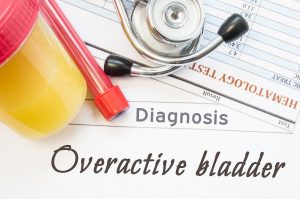
Even though an overactive bladder (OAB) is a physical issue resulting in frequent urges to urinate, the constant fear of wetting yourself or being too far from a bathroom at any given time affects mental health.
There is plenty of anxiety associated with the condition, coming from the fact that is a physical manifestation of losing control over your body. It can contribute to depression and anxiety as you worry about leakages or lose contact with friends because you’re afraid to go out and potentially embarrass yourself.
This can have further implications like missed sleep and more that can ultimately affect other parts of your health, like your cardiovascular system.
Plenty of evidence exists to suggest that there is adequate help available to both treat OAB and deal with the anxiety or depression it can cause. Sometimes treating the mental aspect may even result in improved bladder control.
Some treatment methods include talking to a psychotherapist about your issues and working with them to improve thought patterns and quality of life. A common approach called cognitive-behavioral therapy (CBT) helps to identify unhelpful patterns of thinking and behavior and teaches better coping and problem-solving skills.
There are myriad techniques that might be used, but some may include lifestyle modifications (when and what you drink/scheduling outings), bladder training, self-monitoring, breathing exercises, or muscle relaxation.
An overactive bladder may be treatable, but it could start with easing your mind. Being cognizant of the fact that it’s affecting you is the first step to treating it.
If you’ve identified how an overactive bladder is affecting you, you can begin to take the steps to treat it and go on to improve your condition and regain control of your life.